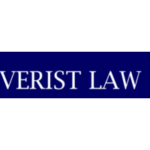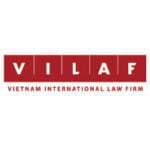-
Please briefly describe the regulatory framework and landscape of both equity and debt capital market in your jurisdiction, including the major regimes, regulators and authorities.
The Securities and Exchange Commission of Thailand (the “SEC”) is the primary regulator overseeing both equity and debt capital markets in Thailand. The principal legislation is the Securities and Exchange Act B.E. 2535 (A.D. 1992), as amended (the “SEC Act”), which governs, among others, securities offerings, disclosure requirements, licensing and supervision of market intermediaries, and the conduct of the intermediaries and listed companies. Other key relevant statutes include:
- Derivatives Act B.E. 2546 (D. 2003), governing derivatives trading; and
- Trust for Transactions in Capital Markets Act B.E. 2550 (D. 2007), enabling the use of trust structures for permitted purposes, including private equity trust and real estate investment trust.
- Royal Enactment on Special Purpose Juristic Persons for Securitization B.E. 2540 (A.D. 1997), enabling the securitization.
The Stock Exchange of Thailand (the “SET”) is the principal securities exchange operating three distinct boards tailored to different types of issuers:
- SET Board: For large, well-established companies with stringent financial and corporate governance requirements.
- Market for Alternative Investment (mai) Board: Tailored for high-growth and smaller companies with more flexible listing criteria.
- LiVE Exchange: Designed for startups and SMEs to raise early-stage capital.
Each board has distinct listing criteria. The SET also regulates disclosure obligations and promotes good corporate governance across all listed entities.
In addition to equities, the SET facilitates trading of various instruments, including warrants, derivative warrants, depositary receipts, real estate investment trusts and infrastructure funds. The SET’s subsidiaries also provide central clearing and settlement, securities depository and securities registrar services.
The SET actively enforces disclosure rules to ensure adequate, equal, and timely disclosure of material information. The Listed entities that no longer meet regulatory requirements may have their securities delisted from an exchange.
-
Please briefly describe the common exemptions for securities offerings without prospectus and/or regulatory registration in your market.
Public offerings of securities require prior approval from the SEC and the registration statement and prospectus must be declared effective by the SEC before any public offering can take place. However, exemptions (from both approval and filing requirements) apply in the following circumstances:
Type of Offering Applicable Instrument Conditions/Limitations Rights Offering Shares, Bonds, Warrants Offering to existing shareholders in proportion to their shareholdings. Private Placement to Institutional Investors Shares No limit on number of investors or offering value. Must qualify as “Institutional Investors” under SEC rules. Private Placement to
Non-Institutional InvestorsShares ≤ 50 investors or aggregate offering value ≤ THB 20 million within any 12-month period. Private Placement to
High-Net-Worth and Ultra-High-Net-Worth Investors (PP10)*Bonds Outstanding bonds plus current bonds offering are limited up to 10 investors and aggregate value of bonds ≤ THB 50 million. Must qualify as “High-Net-Worth Investors” and “Ultra-High-Net-Worth Investors” under SEC rules. Private Placement to
Institutional Investors
(PP10II)*Bonds ≤ 10 investors within any 4-month period. Must qualify as “Institutional Investors” under SEC rules. Offering to Existing Creditors for Debt Restructuring* Bonds No general investor cap, but must be made solely to restructure existing debt. Remark: (*) Subject to bonds transfer restrictions -
Please describe the insider trading regulations and describe what a public company would generally do to prevent any violation of such regulations.
Public companies whose shares are listed on the SET (the “Listed Companies”) are subject to insider trading regulations of which the key substance can be summarized as follows:
(1) Insider Trading Regulations
Insider trading is strictly prohibited under the SEC Act. The law bars any individual in possession of material non-public information (MNPI) from trading securities for their own or others’ benefit. This prohibition applies to a broad range of persons, including directors, executives, employees and other related persons such as auditors, advisors and government officials who receive such MNPI through the performance of their roles.
“Tippees” — individuals who receive MNPI from insiders and use it for trading — are also liable. Both insiders and tippees are prohibited from buying, selling, transferring or accepting transfer of securities using MNPI. Moreover, disclosing MNPI to or encouraging others to trade based on such information is also prohibited.
Violations of the insider trading regulations can lead to criminal liability, which may include fines of up to twice the illicit gain and imprisonment. However, the SEC may opt to impose civil sanctions instead, depending on the circumstances of each case. If the offender complies with the civil sanctions, the corresponding criminal charges will be waived. Civil sanctions may include fines, restitution and disqualification from serving as a director or executive of a listed company for up to 10 years.
(2) Key Preventive Measures Typically Adopted by Listed Companies
- Insider Trading Policies: Companies should adopt clear internal policies prohibiting insider trading.
- Trading Blackout Periods: Insiders are generally prohibited from trading securities during periods of material announcements (including the period of 24 hours after such announcement).
- Disclosure Controls: Companies should adopt clear internal protocol to control and monitor access to MNPI.
- Confidentiality Agreements: Mandating insiders and third parties with access to MNPI to execute non-disclosure agreements (NDAs).
- Training and Awareness: Ongoing training program to educate staff on insider trading regulations and the relevant internal policies.
-
What are the key remedies available to shareholders of public companies / debt securities holders in your market?
(1) Shareholders of Public Companies (both Listed Companies and Non-Listed Companies)
- Court Petition: At least five shareholders or any shareholders holding not less than 20% of the total issued shares may petition the court to revoke a shareholders’ resolution that violates the law or company’s constitutional documents, within one month of its adoption.
- Derivative Action: Shareholders may initiate legal proceedings on behalf of the company against directors or executives for misconduct or breach of fiduciary duty (please see more information in Question No. 10).
- Class Action: Affected investors may initiate a class action lawsuit against the company or its directors for their conduct causing widespread harm, such as false disclosures, insider trading, or corporate fraud, subject to the court certification of common legal or factual issues and if a class proceeding is deemed more efficient than individual lawsuits.
(2) Shareholders of Listed Companies
- Complaint to the SEC: Shareholders can file complaints with the SEC for suspected fraud, insider trading, regulatory breaches, or the disclosure of misleading or incomplete information.
(3) Debt Securities Holders
Bondholders’ Representative: The appointment of a bondholders’ representative is required for public or private placements. The representative is responsible for monitoring the issuer’s compliance with the terms and conditions of the bonds and for taking legal action against the issuer in the event of a default.
Legal Action: If the bondholders’ representative fails to take appropriate legal action in response to a default, the bondholders may initiate a class action lawsuit against the issuer. They may also bring a class action lawsuit against the bondholders’ representative for any damages resulting from the failure to perform its duties.
-
Please describe the expected outlook in fund raising activities (equity and debt) in your market in 2025.
(1) Equity Capital Markets
Fundraising activity in Thailand’s equity capital markets is expected to remain moderate in 2025 amid ongoing market challenges. The SET has faced significant declines, with the index falling over 16% year-to-date, ranking among the worst-performing markets globally. Foreign investors have been consistent net sellers, reflecting subdued investor confidence. These factors—together with political uncertainties and increasingly complex compliance obligations—may dampen appetite for new listings, particularly among small and mid-sized companies.
(2) Debt Capital Markets
Fundraising through debt instruments in Thailand is expected to gain momentum in 2025, underpinned by refinancing needs, easing interest rate expectations, and ongoing support for sustainable finance. With approximately THB 893 billion in corporate bonds set to mature this year, many issuers are anticipated to return to the market for refinancing. This is coupled with the Bank of Thailand’s anticipated policy rate cuts—projected at a total of 50 basis points—which are likely to improve funding conditions and enhance investor appetite for fixed-income instruments, particularly from yield-seeking investors in a lower-rate environment.
Investor demand remains resilient, especially for investment-grade issuers and structured products offering enhanced risk-adjusted returns. However, high-yield or unrated issuers may continue to face credit spread pressures and heightened investor scrutiny.
Thailand’s debt markets also continue to advance along the sustainability path. The government’s issuance of Asia’s first sovereign sustainability-linked bond (SLB) in 2024, alongside the SEC’s fee waivers for green, social, and sustainability bonds through 2025, reflects a strong regulatory push toward ESG-themed instruments. These developments are likely to encourage more corporate issuers to tap the sustainable bond market.
Altogether, the debt capital market in 2025 is poised for a steady recovery, with refinancing activity, favourable monetary policy, and ESG-aligned issuance as key drivers.
-
What are the essential requirements for listing a company in the main stock exchange(s) in your market? Please describe the simplified regime (if any) for company seeking a dual-listing in your market.
A foreign company seeking a dual listing on the SET must comply with the regulatory requirements of both the SEC and the SET. These requirements are categorized into two main regimes: (1) the Recognized Market Regime and (2) the Full Listing Regime.
(1) Recognized Market Regime: This regime applies to a foreign company that:
- has already been or is going to be listed on a stock exchange in a jurisdiction recognized by the Thai SEC (e.g., the United States, the United Kingdom, Hong Kong, Singapore, Australia); and
- offer only a non-material portion of their total shares in Thailand.
The key requirements of the Recognized Market Regime include:
- Financial Eligibility: Must meet the minimum registered capital requirement and either:
- Profit Test: Demonstrated profitability at the specified amount over the past two or three years, including the most recent quarter prior to filing; or
- Market Capitalization Test: Applicable to companies in targeted sectors, such as technology, renewable energy, or advanced manufacturing, that show high growth potential, innovation capacity and sufficient working capital.
- Minimum Public Float: Must meet the minimum threshold for public shareholding.
- Financial Statements: Must be prepared in accordance with IFRS or the home-country’s generally accepted accounting standard (GAAP) (with reconciliation to IFRS) and audited by the SEC-approved auditor.
- Internal Controls: Adequate internal control systems must be in place.
- Integrity of Key Persons: Directors, executives, and controlling persons must meet Thai SEC integrity standards.
- Local Coordinator: Appointment of a Thai-based representative to liaise with Thai investors and regulatory authorities.
- Regulatory Mapping: Must conduct a comparative analysis of applicable Thai and home country regulations.
- Underwriter: The offering in Thailand must be conducted through a Thai SEC-licensed underwriters.
- Ongoing Compliance: Commitment to comply with applicable Thai main exchange regulations.
(2) Full Listing Regime: This regime applies where:
- the offering in Thailand is material relative to the issuer’s total offering size in other countries or to the issuer’s total paid-up shares; or
- the home exchange is in a jurisdiction not recognized by the Thai SEC.
Under the Full Listing Regime, foreign companies must fully comply with the SEC and SET regulations applicable to foreign entities undertaking a primary listing in Thailand, in addition to the requirements under the Recognized Market Regime set out above. The key additional conditions are as follows:
- Conflict of Interest Control: The company must have no material conflicts of interest or must have appropriate mechanisms in place to manage such conflicts.
- Enhanced regulatory mapping: A detailed comparison of shareholder protection framework between Thailand and the home jurisdiction must be conducted, with mitigation plans for regulatory gaps.
- Local Directors: At least two directors must reside in Thailand, one of whom must serve on the audit committee.
- Audit Committee Requirements: Audit committee members must (i) possess the qualifications under Thai law, (ii) have no disqualifying characteristics, and (iii) fully perform duties as prescribed by the SEC and SET.
-
Are weighted voting rights in listed companies allowed in your market? What special rights are allowed to be reserved (if any) to certain shareholders after a company goes public?
Thai law allows flexibility in structuring voting rights through the use of preference shares with voting rights that are less favourable than those of ordinary shares. However, a share carrying more than one vote per share is not currently permitted under Thai law. Effectively, dual-class share structures with weighted voting rights in favour of founders, executives, or other selected shareholders is not legally doable under Thai law at present.
Thai law does not permit individual shareholders to hold special governance or veto rights after a company becomes public, unless such rights, e.g. dividend or liquidation preference, are attached to preference shares
-
Is listing of SPAC allowed in your market? If so, please briefly describe the relevant regulations for SPAC listing.
The listing of Special Purpose Acquisition Companies (SPAC) is currently not permitted under Thai laws. Under the current regulatory framework, companies seeking to list on the Stock Exchange of Thailand (SET) must satisfy, among other things, financial eligibility criteria—either through the profitability test or the market capitalization test. Since a SPAC does not have operating performance or business/financial track record at the time of listing, it is inherently unable to meet either of these requirements. As such, SPACs are ineligible for listing in Thailand under the current rules of the SEC and the SET.
-
Please describe the potential prospectus liabilities in your market.
An issuer offering securities to the public must file a registration statement and draft prospectus (the “Filing Documents”) with the SEC, and the Filing Documents must become effective before commencement of the offering. The Filing Documents must be completed, accurate, not misleading and not contain any material misstatements or omissions. If they do, the investor suffering loss is entitled to claim compensation from the issuer under Thai law.
In addition to the issuer, civil liability may extend to the following parties involved in the preparation and certification of the Filing Documents:
- directors who signed the Filing Documents;
- financial advisors, underwriters, auditors, and appraisers who intentionally or gross negligently certified the Filing Documents.
Such parties may be held jointly liable, unless they can prove, among others, they:
- did not authorize or approve the false or misleading information; and/or
- had no knowledge of the misstatement or omission despite reasonable diligence.
The timeframe for bringing a civil claim is limited to one year from the date the investor becomes aware of misleading statement or omission, and no later than two years from the effective date of the Filing Documents.
-
Please describe the key minority shareholder protection mechanisms in your market.
Thai law provides various mechanisms to protect the rights and interest of minority shareholders of a public company (both Listed Companies and non-Listed Companies). The key protections include:
- Right to propose matters to be considered at a shareholders’ meeting: One or more shareholders collectively holding in aggregate not less than 5% of the total voting shares may propose an agenda item for inclusion at a shareholders’ meeting.
- Right to call for the extraordinary general meeting of shareholders (EGM): Shareholders holding not less than 10% of the total number of issued shares may submit a written request to the board of directors to convene an EGM at any time. The request must clearly state the objectives and reasons for calling the meeting. Upon receipt, the board of directors must convene the EGM within 45 days, otherwise such shareholders (who served the notice) may convene the EGM themselves within 45 days after the lapse of the first 45-day period.
- Right to request an inspection of the business: One or more shareholders collectively holding not less than 5% of the total issued shares in a public company may submit a written request to the registrar to appoint an inspector to investigate the company’s business operation, financial position or the conduct of the board of directors.
- Right to request revocation of a shareholders’ resolution: At least 5 shareholders or shareholders collectively holding not less than 20% of the total number of issued shares in a public company may petition the court to revoke a shareholders’ resolution if it violates the law or the company’s articles of association, provided that such petition must be filed with the court within 1 month from the date on which such resolution is passed.
- Right to initiate legal action against a director: One or more shareholders holding not less than 5% of the total number of issued shares may notify the company in writing to demand that it takes legal action against a director whose act or omission causes damage to the company. If the company fails to act as requested, such shareholders may bring a derivative action on behalf of the company and may also seek a court order to remove the director from office.
-
What are the common types of transactions involving public companies that would require regulatory scrutiny and/or disclosure?
A Listed Company is subject to a range of disclosure and regulatory requirements when undertaking significant transactions. The following types of transactions typically trigger regulatory scrutiny and mandatory disclosure:
- Disclosure of Material Events: A Listed Company must promptly disclose any material event that could influence investment decisions or affect the company’s share price or shareholders’ benefits, as prescribed by SET’s disclosure rules, e.g., acquisition or disposal of a subsidiary, entering into or terminating a joint venture or significant agreement and any other events that materially impact the company’s financial conditions, business operations or shareholder value.
- Capital Increases and Equity Offerings: The issuance of new shares requires disclosure to the SET and shareholders’ approval. In the case of private placements, the SEC will also review the adequacy of the disclosure before it is delivered to shareholders.
- Acquisitions or Disposals of Assets: Transactions involving asset acquisitions or disposals that trigger certain thresholds (calculated based on, e.g., the company’s net asset value or net profit) are subject to mandatory disclosure, and, depending on the transaction size, may require prior approval from the board of directors or shareholders. The SEC will also review the adequacy of the disclosed information before such materials are circulated to shareholders.
- Relate Party Transactions: Transactions with related persons (e.g., major shareholders, directors, executives) are subject to specific disclosures and approval requirements under the SEC and SET regulations. Please refer to item No. 12 for more detail.
-
Please describe the scope of related parties and introduce any special regulatory approval and disclosure mechanism in place for related parties’ transactions.
Transactions between a Listed Company (or its subsidiary) and a related person must comply with the regulatory framework prescribed by the SEC and the SET.
Scope of “Related Person”
The term “related person” is broadly defined to include:
- A director, executive, major shareholder and controlling person of a Listed Company as well as their related persons and close relatives;
- A person who is becoming a major of a Listed Company as well as their related persons and close relatives;
- An entity in which such persons listed in (a) and/or (b) are a major shareholder or a controlling person of such an entity; and
- Any person whose behavior indicates that they are acting on behalf of, or under the significant influence of, any person listed in (a) to (c).
Approval and Disclosure Requirements
Before entering into a related party transaction, a Listed Company must assess the transaction value relative to its net tangible assets (NTA). The regulatory requirements escalate based on the transaction size and type. The general requirements can be summarized as follows:
Transaction Size Disclosure Requirement to the SET Approval Required* ≤ 0.03% of NTA or
THB 1 million (whichever is higher)No No special approval required > 0.03% but < 3% of NTA or
> THB 1 million but < THB 20 million (whichever is higher)Yes, according to the SET’s minimum requirements Board of directors’ approval ≥ 3% of NTA or ≥ THB 20 million (whichever is higher) Yes, according to the SET’s minimum requirements Shareholders’ approval (excluding interested parties)** Remark: (*) Some types of transactions are exempt from, or subject to different requirements than those listed above. (**) A listed company must also appoint an independent financial advisor (IFA) to provide an independent opinion to its shareholders.
These measures aim to ensure transparency, fairness, and the protection of minority shareholders by preventing abusive self-dealing or conflicts of interest in related party transactions.
-
What are the key continuing obligations of a substantial shareholder and controlling shareholder of a listed company?
Substantial and controlling shareholders are not subject to fiduciary duties or fair treatment obligations akin to those imposed on directors or executives of a listed company. However, they are subject to specific obligations related to takeovers, as follows:
- Shareholding Disclosure Obligations: Any person – who either individually or together with their related persons (e.g., their spouse, minor child) and persons acting in concert – acquires or disposes of securities in a listed company, resulting in the increase or decrease of their total voting rights to a number that reach a multiple of 5% (e.g., 5%, 10%, 15%, etc.), is required to promptly report such change to the SEC.
- Mandatory Tender Offer (MTO) Obligations: Any person who acquires securities, either by his/her own or together with its related persons and person acting in concert with others, resulting in their total voting rights reaching 25%, 50%, or 75% of a listed company’s total voting shares, is required to make a mandatory tender offer (MTO) for all remaining securities of the company. Please refer to item No. 15 for more details.
-
What corporate actions or transactions require shareholders’ approval?
Shareholders’ approval (applies to both Listed Companies and non-Listed Companies) is required for various key corporate actions. These can be classified based on the type of resolution and the minimum voting threshold required at a shareholders’ meeting. Key resolution requirements are as follows:
- Ordinary Resolutions: Requiring a majority vote of shareholders present at the meeting and vote, excluding abstentions. Examples include: appointment of directors, appointment and remuneration of an auditor, declaration of annual dividends and approval of annual financial statements.
- Special Resolutions (3/4): Requiring at least three-fourths (3/4) of the total votes of shareholders present at the meeting and entitled to vote. Examples include: amendments to the Articles or Memorandum of Association, capital increase/decrease, amalgamations, dissolution, delisting from the SET, substantial related party transactions or material acquisitions/disposals of assets, and the issuance of bonds.
- Other Resolutions: Requiring at least two-thirds (2/3) of the total votes of shareholders present at the meeting, e.g. approval of remuneration of directors.
-
Under what circumstances a mandatory tender offer would be triggered? Is there any exemption commonly relied upon?
A mandatory tender offer (MTO) obligation arises when a person, together with related persons and persons acting in concert, acquire securities of a Listed Company resulting in their aggregate shareholding to trigger 25%, 50%, or 75% of the company’s total voting rights. In such event, the acquirer is required to make a tender offer for all securities of the Listed Company.
Exemptions from the MTO obligation include, among others:
- Inheritance or Stock Dividends: Acquisitions by way of inheritance, receipt of stock dividends declared by a Listed Company;
- Rights Offering: subscription of newly issued shares under a rights offering, on a pro-rata basis, where a shareholder does not acquire shares beyond their entitlement;
- Intragroup Transfer: Transfers of securities within a group, where the ultimate control remains unchanged; and
- Whitewash Exemption: The key requirements for the whitewash exemption includes: (a) an acquisition of newly issued shares in a Listed Company, resulting in an acquirer holding less than 50% of the company’s total issued shares; (b) the share issuance is approved by a special resolution of the shareholders’ meeting (excluding interested shareholders); and (c) the shareholders explicitly waive the MTO requirement as part of the resolution.
-
Are public companies required to engage any independent directors? What are the specific requirements for a director to be considered as “independent”?
Only a Listed Company is required to have independent directors comprising at least one-third of the board of directors, and in any cases no fewer than three independent directors.
To qualify as an “independent director”, such a person must possess all qualifications determined by the SEC. The key qualifications are as follows:
- Shareholding Limit: Must hold no more than 1% of the total voting shares of the company, including those of its parent company, subsidiaries, affiliates, major shareholders or controlling persons.
- Employment and Executive Roles: Must not currently be, or have been within the past two years, an executive, employee, salaried advisor, or person with control over the company or its group companies.
- Family Relationship: Must not be a close relative (i.e., parent, spouse, sibling, child, or child’s spouse) of any director, executive, major shareholder, or controlling person of the company or its subsidiaries.
- Business Relationships: Must not have (or have had within the past two years) any material business relationship with the company or its related entities that could affect their independent judgment, including being a major shareholder or having control over a key business partner of the company.
- Professional Services: Must not currently be, or have been within the past two years,
- an auditor of the company or its group company; or
- a provider of professional services (such as, legal, financial or consulting services) to the company or its group where the service fees exceeded THB 2 million per year.
- Representation of Major Shareholder: Must not be a director appointed as a representative of a major shareholder or any related party.
- Competitive Business Involvement: Must not operate, hold more than 1% of shares or serve in management or paid advisory capacity in any business that directly competes with the company or its subsidiaries.
-
What financial statements are required for a public equity offering? When do financial statements go stale? Under what accounting standards do the financial statements have to be prepared?
Under Thai SEC regulations, an issuer conducting a public equity offering in Thailand must include in its prospectus audited financial statements for the past three fiscal years and the latest reviewed quarterly financial statements that meet specific accounting standards. The requirements differ for Thai and foreign issues.
- For a Thai Issuer: Financial statements must comply with Thai Financial Reporting Standards (TFRS) for publicly accountable entities.
- For a Foreign Issuer: Financial statements must be prepared under one of the following standards:
- TFRS;
- International Financial Reporting Standards (IFRS)
- Generally Accepted Accounting Principles (GAAP) of the issuer’s home country (home-country GAAP), provided that a reconciliation to IFRS is also submitted.
-
Please describe the key environmental, social, and governance (ESG) and sustainability requirements in your market. What are the key recent changes or potential changes?
Key ESG and Sustainability Disclosure Requirements in the Form 56-1 One Report
The Listed Companies are required to disclose environmental, social and governance (ESG) and sustainability information as part of their annual registration statement, so-called the “Form 56-1 One Report” within three months after the end of their fiscal year. This report must be filed with the SEC and SET, and must be made available to shareholders. It includes the disclosure of key ESG information, such as:
- A clearly defined ESG and sustainability policy and strategic goals that align with the company’s overall business strategy.
- Quantitative data on greenhouse gas (GHG) emissions, which must be verified by either the Thailand Greenhouse Gas Management Organization (TGO) or another internationally recognized verification body. If GHG emissions data is unavailable, an explanation must be provided.
- The board-approved policies, plans and procedures on ESG and sustainability management, along with results or outcomes compared to the established goals.
Recent Developments in ESG and Sustainable Finance
- The SEC actively promotes the development of Thailand’s sustainable finance ecosystem. As part of this effort, the SEC has waived filing and application fees for the issuance of sustainable debt instruments – including green bonds, social bonds, sustainability bonds, and sustainability-linked bonds– until the end of May However, for green, social and sustainability bonds, the waiver of filing fees is condition upon the inclusion of project selection information reference the Thailand Taxonomy or ASEAN Taxonomy, along with an independent external review confirming alignment with the referenced standards.
- The SET has also launched an ESG Data Platform, which provides structured, accessible ESG information from Listed Companies on the SET website. The initiative is intended to meet the rising demand from institutional and retail investors for sustainable investment data, and to standardize ESG disclosure practice in Thailand’s capital markets.
-
What are the typical offering structures for issuing debt securities in your jurisdiction? Does the holding company issue debt securities directly or indirectly (by setting up a SPV)? What are the main purposes for issuing debt securities indirectly?
Debt securities are typically issued directly and it is uncommon to use a special purpose vehicle (SPV) for indirect issuance.
-
Are trust structures adopted for issuing debt securities in your jurisdiction? What are the typical trustee’s duties and obligations under the trust structure after the offering?
Under the Trust \ Act, the SEC Act, and related notifications issued thereunder, a trust may be created for the benefit of capital market transactions as specified in SEC notifications. Examples include:
- Active Trust: A trust created for the active investment management of assets held by the trust, involving the issuance of trust units—for example, Real Estate Investment Trusts (REITs) and Infrastructure Trusts (Infra Trusts). REITs and Infra Trusts are permitted to issue debt securities under the SEC Act to raise funds for asset investments. In such cases, bondholders are considered creditors of the REIT or Infra Trust.
- Passive Trust: A trust created to hold assets or facilitate debt repayment in connection with securities issuance—for example, a trust holding money or assets in a reserve account, sinking fund, or cash collected from assets held by a SPV for bond repayment.
Trusts established under the Trust Act are supervised by the SEC and are subject to a comprehensive regulatory framework designed to protect investors. The trustee has a duty in administering the trust in accordance with the trust deed and the provisions of the Trust Act.
-
What are the typical credit enhancement measure (guarantee, letter of credit or keep-well deed) for issuing debt securities? Please describe the factors when considering which credit enhancement structure to adopt.
Credit enhancement is often employed to improve the creditworthiness of debt securities, particularly in offerings involving unrated, non-investment-grade, or unsecured bonds. Typical credit enhancement measures include
- Collateral and Asset-Based Enhancements: Issuers may secure bonds using physical assets, project-generated cash flows, or receivables, particularly in project finance or structured debt transactions. The use of ring-fenced assets is intended to isolate credit risk and provide recourse for bondholders.
- Guarantees and Support Agreements: These may include guarantees from a parent company or affiliate, bank guarantees or keep-well agreements. However, such forms of credit enhancement are seldom used in Thailand.
-
What are the typical restrictive covenants in the debt securities’ terms and conditions, if any, and the purposes of such restrictive covenants? What are the future development trends of such restrictive covenants in your jurisdiction?
In Thailand, restrictive covenants are a standard feature in the terms and conditions of debt securities, particularly unrated, below-investment-grade, or unsecured bonds offerings. These covenants are designed to help mitigate credit risks and protect investors by limiting the issuer’s ability to take actions that could adversely affect its financial health and debt servicing capacity.
Typical restrictive covenants include negative pledge, limitation on additional indebtedness, dividend restrictions, restrictions on asset disposals or mergers, and financial maintenance covenants (i.e., requirements for an issuer to maintain certain financial ratios, such as minimum interest coverage ratio, maximum debt-to-equity ratio and net debt to EBITDA thresholders, where applicable).
The restrictive covenants are intended to serve various purposes, for example:
- To preserve the issuer’s credit profile during the life of the bond;
- To prevent structural subordination or asset leakage that could disadvantage bondholders;
- To ensure adequate financial discipline, particularly in high-risk or high-leverage environments; and
- To provide early warning mechanisms for investors and trustees in the event of financial deterioration.
In terms of trends and development, there is growing demand from institutional investors for more robust financial maintenance tests, particularly in high-yield or unrated offerings. Investment-grade or highly rated issuers may negotiate for fewer or less stringent covenants, as investor confidence is primarily based on issuer’s reputation and track record.
-
In general, who is responsible for any profit/income/withholding taxes related to the payment of debt securities’ interests in your jurisdiction?
Under Thai tax law, the debt securities holders (i.e., the bondholders) are ultimately responsible for any profit, income, or withholding taxes arising from interest payments received on debt securities.
The issuer has a legal obligation to, at the time of making interest payments, (a) withhold the applicable amount of tax at source; and (b) remit the withheld tax to the Thai Revenue Department within the timeline prescribed by law.
-
What are the main listing requirements for listing debt securities in your jurisdiction? What are the continuing obligations of the issuer after the listing?
Debt securities are not listed on the SET in the same way as equities. Instead, they are registered with the Thai Bond Market Association (ThaiBMA) and traded on the over-the-counter (OTC) market.
The post-offering obligations of bond issuers are subject to ongoing disclosure and reporting requirements, primarily governed by the SEC, of which the key requirements include:
- Annual and Quarterly Financial Statements: Must be submitted to the SEC within prescribed timelines;
- Financial Covenant Compliance Report: A report confirming the issuer’s compliance with the financial covenants outlined in the bond terms and conditions must be submitted to the SEC together with the financial statements; and
- Annual Registration Statement (Form 56-1 One Report): Must be filed on an annual basis to provide updated corporate, operational and financial information.
The issuers of debt securities who are non-Listed Companies, however, are exempt from submitting quarterly financial statements, and annual registration statements (Form 56-1 One Report). Instead, they must submit annual financial statements; and semi-annual (half-year) financial statements.
Thailand: Capital Markets
This country-specific Q&A provides an overview of Capital Markets laws and regulations applicable in Thailand.
-
Please briefly describe the regulatory framework and landscape of both equity and debt capital market in your jurisdiction, including the major regimes, regulators and authorities.
-
Please briefly describe the common exemptions for securities offerings without prospectus and/or regulatory registration in your market.
-
Please describe the insider trading regulations and describe what a public company would generally do to prevent any violation of such regulations.
-
What are the key remedies available to shareholders of public companies / debt securities holders in your market?
-
Please describe the expected outlook in fund raising activities (equity and debt) in your market in 2025.
-
What are the essential requirements for listing a company in the main stock exchange(s) in your market? Please describe the simplified regime (if any) for company seeking a dual-listing in your market.
-
Are weighted voting rights in listed companies allowed in your market? What special rights are allowed to be reserved (if any) to certain shareholders after a company goes public?
-
Is listing of SPAC allowed in your market? If so, please briefly describe the relevant regulations for SPAC listing.
-
Please describe the potential prospectus liabilities in your market.
-
Please describe the key minority shareholder protection mechanisms in your market.
-
What are the common types of transactions involving public companies that would require regulatory scrutiny and/or disclosure?
-
Please describe the scope of related parties and introduce any special regulatory approval and disclosure mechanism in place for related parties’ transactions.
-
What are the key continuing obligations of a substantial shareholder and controlling shareholder of a listed company?
-
What corporate actions or transactions require shareholders’ approval?
-
Under what circumstances a mandatory tender offer would be triggered? Is there any exemption commonly relied upon?
-
Are public companies required to engage any independent directors? What are the specific requirements for a director to be considered as “independent”?
-
What financial statements are required for a public equity offering? When do financial statements go stale? Under what accounting standards do the financial statements have to be prepared?
-
Please describe the key environmental, social, and governance (ESG) and sustainability requirements in your market. What are the key recent changes or potential changes?
-
What are the typical offering structures for issuing debt securities in your jurisdiction? Does the holding company issue debt securities directly or indirectly (by setting up a SPV)? What are the main purposes for issuing debt securities indirectly?
-
Are trust structures adopted for issuing debt securities in your jurisdiction? What are the typical trustee’s duties and obligations under the trust structure after the offering?
-
What are the typical credit enhancement measure (guarantee, letter of credit or keep-well deed) for issuing debt securities? Please describe the factors when considering which credit enhancement structure to adopt.
-
What are the typical restrictive covenants in the debt securities’ terms and conditions, if any, and the purposes of such restrictive covenants? What are the future development trends of such restrictive covenants in your jurisdiction?
-
In general, who is responsible for any profit/income/withholding taxes related to the payment of debt securities’ interests in your jurisdiction?
-
What are the main listing requirements for listing debt securities in your jurisdiction? What are the continuing obligations of the issuer after the listing?

















